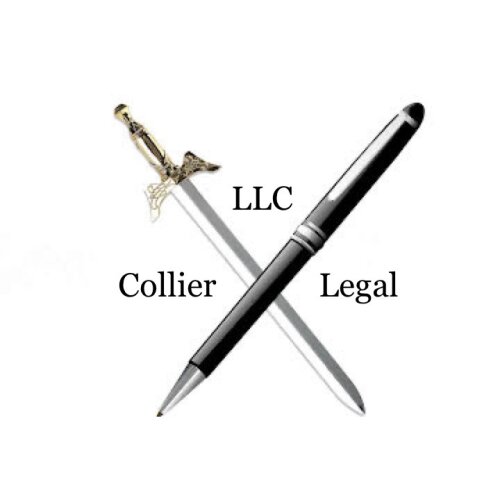Best Art & Cultural Property Law Lawyers in United States
Share your needs with us, get contacted by law firms.
Free. Takes 2 min.
Or refine your search by selecting a city:
List of the best lawyers in United States
About Art & Cultural Property Law in United States
Art & Cultural Property Law in the United States is a specialized area of law that addresses the legal aspects of the creation, transfer, and protection of artworks and cultural heritage. This field encompasses a wide array of topics, including the protection of art from theft, repatriation of cultural artifacts, intellectual property rights in artworks, and the obligations and rights of museums, collectors, and artists. Lawyers in this field are required to understand not only legal regulations but also the nuances of artistic and cultural value.
Why You May Need a Lawyer
Individuals and organizations may find themselves in need of legal advice in various scenarios related to Art & Cultural Property Law. Common situations include:
- Disputes over the ownership of artworks or cultural artifacts.
- Art theft, both recovery, and defense against allegations.
- Negotiating and drafting contracts for the sale or loan of art pieces.
- Issues related to the preservation and export/import of cultural property.
- Handling intellectual property issues in the creation and distribution of artworks.
- Navigating repatriation requests from foreign governments or indigenous groups.
Local Laws Overview
The legal framework for Art & Cultural Property Law in the United States includes federal, state, and even international statutes. Key laws and regulations include:
- The National Stolen Property Act, which facilitates the recovery of stolen art.
- The Cultural Property Implementation Act, enforcing the United Nations Convention on the means to prohibit and prevent the illicit import, export, and transfer of ownership of cultural property.
- Intellectual Property laws such as Copyright and Trademark laws relevant to artworks.
- Laws governing the operation and chartering of museums and cultural institutions.
- Customs regulations affecting the import and export of artwork.
Frequently Asked Questions
What is the role of provenance in art law?
Provenance refers to the documented history of an artwork’s ownership. It is crucial in establishing authenticity and legal ownership, especially in disputes over stolen or looted art.
How can I check if an artwork I'm purchasing is stolen?
You can check stolen art registries, such as the Art Loss Register, to determine if an artwork has been reported stolen. Consulting an attorney specialized in art law can also provide more comprehensive due diligence.
What are my rights if my art is copied without permission?
If your artwork is copied without permission, you may have rights under Intellectual Property Laws, specifically Copyright Law, which can help you seek remedies for infringement.
How does the law protect cultural heritage?
The law protects cultural heritage through international treaties and national acts such as the Cultural Property Implementation Act, which regulates the import and export of culturally significant items.
Can foreign artifacts be claimed by other countries?
Yes, countries can request the return of artifacts based on cultural patrimony laws, supported by international agreements such as UNESCO conventions.
What legal responsibilities do museums have regarding acquisitions?
Museums must ensure that acquisitions are legally obtained and ethically sourced, often following strict due diligence protocols to verify provenance and legality.
Are there tax incentives related to donating art?
Yes, donating art to museums or nonprofit entities can offer tax deductions, but the process must comply with IRS regulations on valuations and gifting.
What should I include in an art sale contract?
An art sale contract should include a description of the artwork, price and payment details, warranty of title and authenticity, and terms for delivery and risk.
How are stolen artworks returned to their rightful owners?
Stolen artworks are often returned through legal proceedings that may involve proving title through provenance, negotiations, or mediation facilitated by legal experts.
What resources are available for artists to protect their rights?
Artists can use resources such as legal clinics focused on art law, organizations like the Volunteer Lawyers for the Arts, and online intellectual property databases
Additional Resources
For more information or assistance related to Art & Cultural Property Law, consider the following resources:
- Volunteer Lawyers for the Arts
- The International Foundation for Art Research (IFAR)
- The Art Loss Register
- Institute of Museum and Library Services (IMLS)
- U.S. Customs and Border Protection for import/export regulations
Next Steps
If you find yourself in need of legal assistance in the field of Art & Cultural Property Law, consider the following actions:
- Consult with a specialized attorney to gain insights into your specific situation.
- Gather all relevant documentation, such as provenance records, sales contracts, or correspondence.
- Research local and international laws that may apply to your case.
- Reach out to art law organizations or legal clinics for preliminary advice or resources.
- Consider alternative dispute resolution methods like mediation if facing a dispute.
Seeking professional legal guidance is crucial in navigating the complexities of Art & Cultural Property Law, ensuring that your rights and responsibilities are thoroughly understood and safeguarded.
Lawzana helps you find the best lawyers and law firms in United States through a curated and pre-screened list of qualified legal professionals. Our platform offers rankings and detailed profiles of attorneys and law firms, allowing you to compare based on practice areas, including Art & Cultural Property Law, experience, and client feedback.
Each profile includes a description of the firm's areas of practice, client reviews, team members and partners, year of establishment, spoken languages, office locations, contact information, social media presence, and any published articles or resources. Most firms on our platform speak English and are experienced in both local and international legal matters.
Get a quote from top-rated law firms in United States — quickly, securely, and without unnecessary hassle.
Disclaimer:
The information provided on this page is for general informational purposes only and does not constitute legal advice. While we strive to ensure the accuracy and relevance of the content, legal information may change over time, and interpretations of the law can vary. You should always consult with a qualified legal professional for advice specific to your situation.
We disclaim all liability for actions taken or not taken based on the content of this page. If you believe any information is incorrect or outdated, please contact us, and we will review and update it where appropriate.
Browse art & cultural property law law firms by state in United States
Refine your search by selecting a state.
















